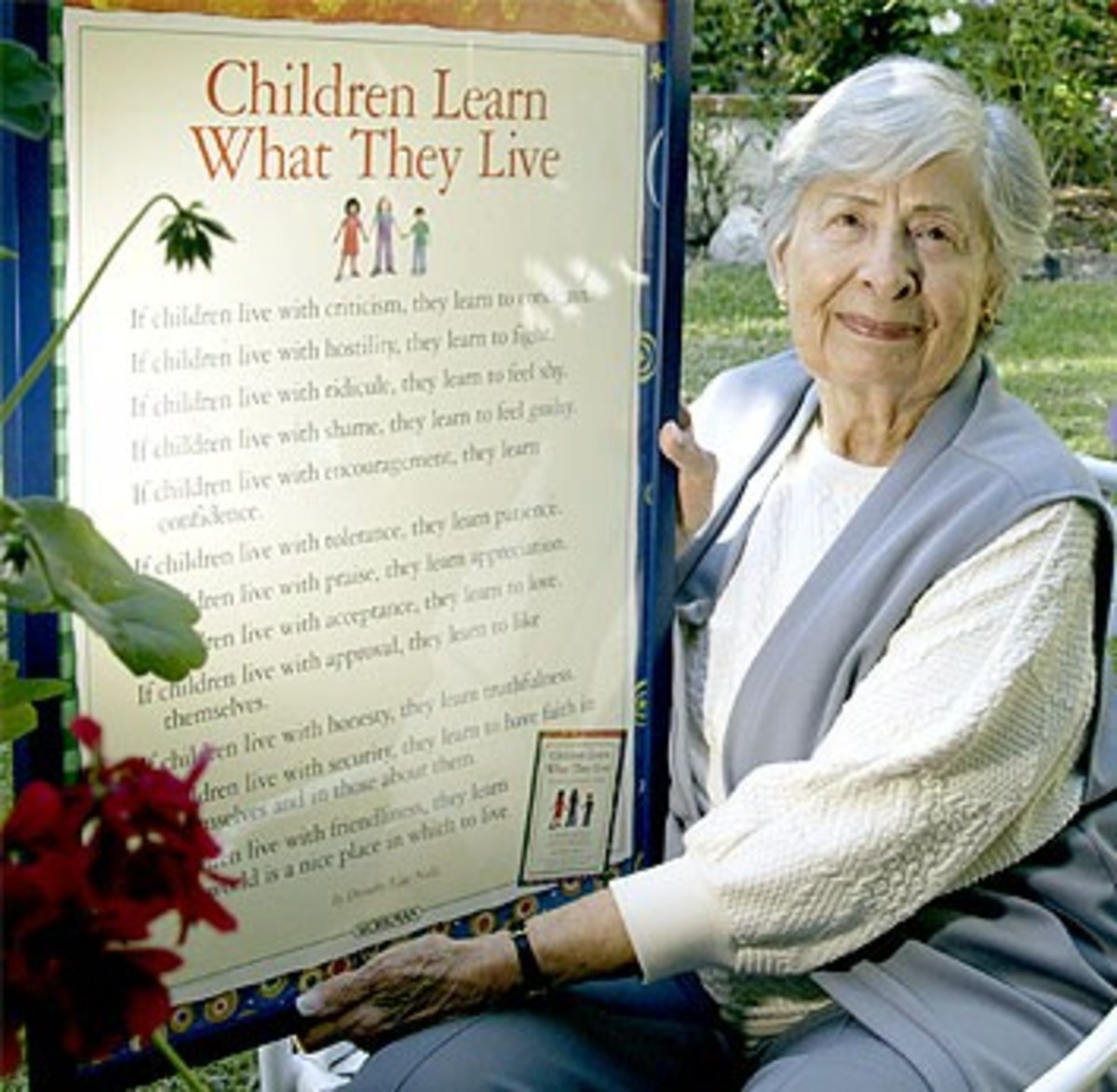- HubPages»
- Family and Parenting»
- Kids»
- Children's Growth & Development
Why Play is Important for a Childs Development.

Discovering how your child learns through play.
Essias once said of play; "Il faut noter, que les eux d'enfants ne sont pas jeux, et le faux juger en eux comme leurs plus serieuses actions'
"It should be noted that children at play are not playing about; their game should be seen as there most serious minded activity'.
Suggesting that the games that children play are of greater significance then just being fun. Although it is not a contemporary quote, through modern understanding of play we now know this as the accepted purpose of play.
Parliamentary bodies are proposing that more play may be introduced in primary schools as a matter of educational course. Scientific research and evidence along with psychological analysis and study show that they are thinking along the right lines.
The pressures of exams and rising reluctance to attend school experienced by some students would benefit from measures like these.
The love, instinct and dedication that children have for noise, mess and running around really is for their immediate and long term well-being. Honest! There are ten principle's of play, all of which significantly contribute beneficially to a child's behaviour, learning and development.
1. Play is not only important but imperative to a childes development.
Children who are denied of play experience, may suffer detrimental effects to their health and general well being.
When instinct can not find a natural out let painful conflict arises, nature relieves this state by suppressing the natural urge, removing it from the conscious into the unconscious. However when suppression is incomplete it leads to frequent conflict and sometimes perversions of a serious nature. This can often be experienced well into adulthood. Forbidden self display and failure to recognise a childes right to express themselves, are also main causes of inferiority complex. Consequences of which lead to boastful, aggressive behaviour both mental and physical. Also some individuals become argumentative, intrusive, insensitive, anti social exhibit neurotic behaviour and in some cases turn to illegal activities in pursuit of peer acceptance as a substitute for parental approval.
2. You can learn what a child is thinking and feeling by the way they play.
Play is a form of expression and children reveal things through play that might otherwise go unnoticed.
In some more serious cases it may mean acting out scenes of abuse or bullying they may have witnessed or experienced, as well as other anxieties or issues. On a more positive note you may notice a game that they particularly like or who their friends are. A little observation can give real insight and help you to understand your child better.
3. Play is the most significant contribution to the way a child learns about life.
In one study rats were offered an environment with things like wheels, other rats, climbing equipment and special food.
After just eight weeks the rats had developed an extra one hundred and fifty thousand brain cells on each side of the hippacampus one of the areas of the brain that contribute to memory and learning.
Children also gain huge advantages in a similar way through exploration, imagination, creativity and social time all things that parents or carers can encourage in various ways.
4. When children play they explore their environment and discover new things.
To feed a child's inquisitiveness new places and new experiences are a must.
To test this theory out for myself, I recently visited a place in my local area of which I had never been to before. My son and I felt like real explorers as we walked a muddy footpath by a river. We talked about the plant's and animals we saw. We played in sand and water by the embankment and he did some 'rock climbing'. It didn't cost us a penny, we were out for four hours and we liked it so much we are going back there again. All kinds of games and activities like this encourage a child's perseverance, focus, drive, curiosity and motivation.
5. Children can and should play by themselves.
Ideally children should not spend frequent or long periods of time by themselves.
However some alone time enables a child to learn about self discovery, to feel secure with their own thoughts and forming there own opinions.
Spending some time alone does not mean that the child will feel lonely as long as there are no separation issues. Offering just a few constructive ideas and suggestions can enrich a child's life in many ways. Even something as simple as sand and water will keep them entertained for ages, do you remember how much fun you used to have at the beach?
6. Playing is the way children make sense of the world.
Life is often a bit of a mystery, even for adults with all our knowledge and experience.
Encouraging your child to play with as wider range of children as possible, will expose them to different cultures, beliefs and financial status.
Experiencing for themselves the richness of diversity in life.
Through lack of socially interactive play a child could express certain urges inappropriately which may lead to a child being misdiagnosed with ADHD (Attention Deficit Hyperactivity Disorder), and subsequently wrongly treated.
7. Play enables children to experiment and practice new skills.
Children don't worry about failure and adults seem to worry all to much. Looking silly, it doesn't matter.
I didn't do it quite right, so what! In fact adults and children alike find humour in and remember the instances when things don't quite go according to plan. Also a great number of inventions and discoveries were made by mistake! Children adopt this process of trial and error automatically through play. Children develop logical thought patterns through experimental play and creative play lowers stress levels, enabling them to deal with stressful situations with more ease.
8. It is the process of play that is important not the result.
It's all to easy to forget that life is about the journey not the destination.
Children absorb vast amounts of information and understanding almost unconsciously. By considering how much a child learns and grows in the first few years of their life. You can see just how important all that play has been, but to them it was all just a bit of fun, it didn't feel like learning at all.
9. When they are playing they can find out what it is like to be an adult.
A class of six year olds in a London infant school were asked to draw pictures of adults and children.
Without exception all the pictures of adults showed them working, driving, doing household chores, gardening or doing home improvement.
However all the pictures that were drawn of children were of them jumping, doing sport and playing.
This is a good demonstration of how children perceive their own lives and that of ours.The activities differ greatly, while being a child is seen as all and games, being an adult can seem like pretty hard work. Children dress up and act out grown up situations in preparation for later life including things like; expected social etiquette, conversation, work and home responsibilities.
10. The most important thing to remember is, that play is fun!
Children need a plethora of information and experience everyday for continued growth and beneficial development.
What better way then to make it fun. When something is fun learning it becomes easier, that's why you tend to be good at things that you enjoy. Song's and rhymes are a very effective way to recall and retain information. When facts are made relevant to children using play as a tool for teaching, it reinforces and initiates further interest in that particular subject or area of development. Research, study and analysis show play is productive as well as enjoyable weather as an individual or shared activity for both parent and child.
Playing by the rules.
There are only 3 rules of play, each are important and none inhibit any of the fun.
1. Always ensure adults and children are safe in their endeavours.
2. Play in a secure and appropriate environment and
3. Ensure play is suitable for the child's age and ability.
- 14 tricks to getting kids to eat healthy fruit and v...
As a parent your child's health is of great importance to you, one of the major contributors to a child's healthy development, alongside play, education and exercise is of course a varied diet. One which includes, calcium, iron, omega 3, as well as.. - Why Won't My Child Go To School?
Even though the government have bought in various schemes and incentives to encourage better attendance by pupils in schools, rates of truancy have continued to increase. The most severe consequence of a student skipping school falls firmly at the...







